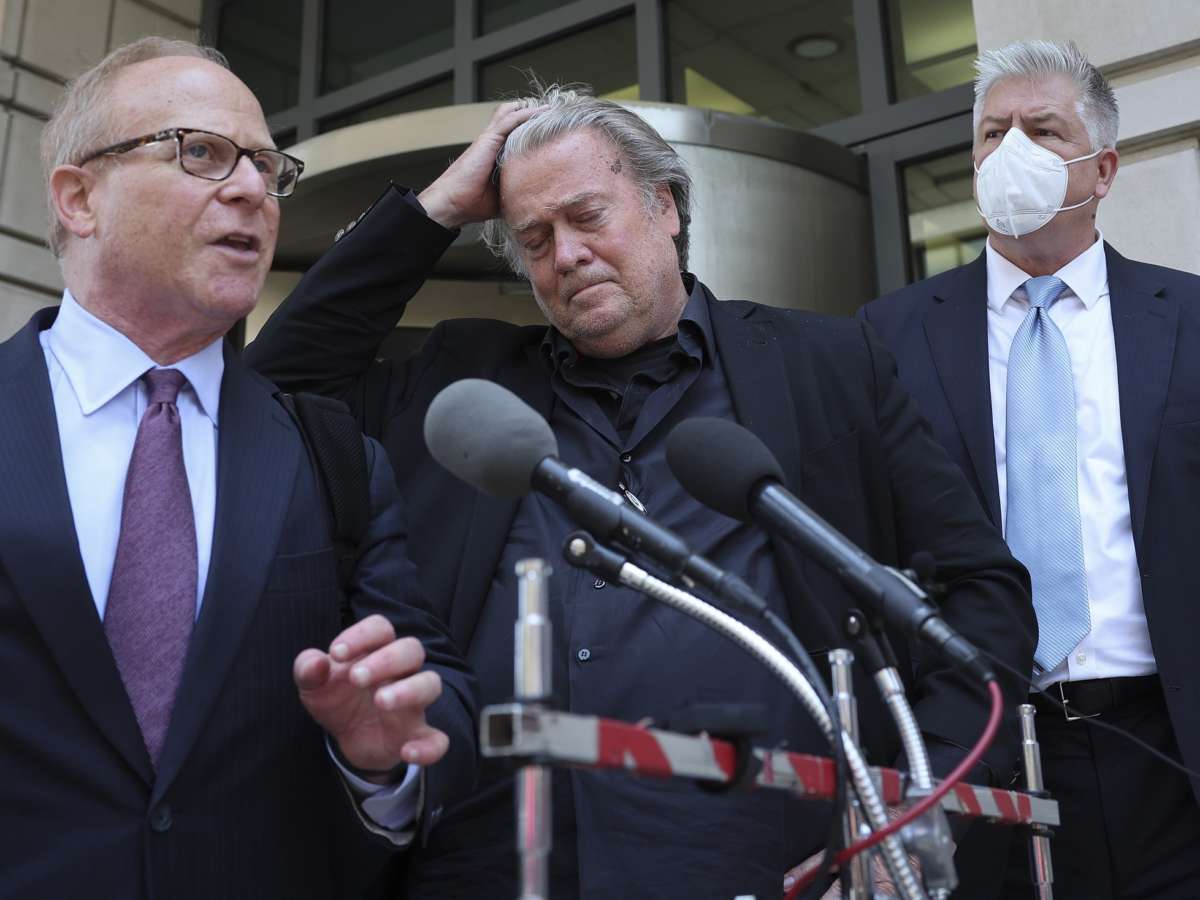The contempt of Congress trial of Steve Bannon, a former White House political strategist for former President Donald Trump, formally began on Monday, with the selection of jurors who will eventually determine his legal fate.
Bannon faces two contempt of Congress charges based on his refusal to adhere to subpoenas from the House select committee investigating the January 6 attack on the U.S. Capitol building. Bannon is the first individual from Trump’s inner circle of former aides and confidantes to be tried due to the committee’s work, although the charges he faces are unrelated to anything the panel has unearthed so far.
Bannon was subpoenaed last year by the committee, which noted that he had communicated with Trump in late December 2020 regarding efforts to overturn the electoral contest Trump lost to now-President Joe Biden. During a conversation in the final week of that year, Bannon spoke with Trump directly, urging him to “focus his efforts on January 6th,” the committee said.
According to the committee:
Mr. Bannon also reportedly attended a gathering at the Willard Hotel on January 5th, 2021, as part of an effort to persuade Members of Congress to block the certification of the election the next day.
On his radio show that same day, Bannon told listeners that “all hell is going to break loose” on January 6.
Bannon’s trial will not focus on those matters, but rather on his refusal to speak before the committee and share documents deemed vital to their investigation into schemes devised by Trump and his allies to improperly keep the former president in office.
According to NBC News legal analyst Glenn Kirschner, who is covering the first day of Bannon’s trial, jury selection has been slow-going. Potential members of the jury “run the spectrum” between those who have a lot of opinions about Bannon to those who don’t know anything about him or the January 6 committee’s work.
Judge Carl Nichols, who was himself selected to his post by Trump, has said that jurors with known biases against Bannon are being rejected outright. But Nichols has been open to allowing those with some negative opinions about Bannon to be considered, so long as they demonstrate a willingness to be impartial about the facts of the trial.
Earlier this month, Bannon made a last-ditch effort to avoid a trial altogether by saying that he was ready to testify, a move that caused many legal experts to question whether he actually intended to be a sincere witness for the January 6 committee, or whether his action was simply a means to delay the trial.
Ultimately, the Department of Justice (DOJ) asked Nichols to reject the plan, which he did, keeping the trial date in place and moving the case forward.
If convicted, Bannon may face up to a year in prison for each of the two charges he has been accused of.


